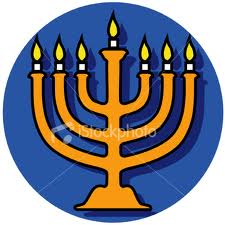Welcome to Marks Manor


Genesis 1:1
בּרֵאשׁית בָּרָא אֶלֹהִים אֵת הַשׁמַיִם וְאֵת הָאָרֶץ:
Genesis 1: 1 In the beginning God created the heaven and the earth.
The first word of Genesis 1:1 is transliterated as bereshiyt. The Hebrew letters are beyt, resh, aleph, shin, yod, tav. This word translates literally to "at the head of" or "in the head of".
The second word is transliterated bara. The Hebrew letters are beyt, resh, aleph. This word means to fatten or to fill.
The next word transliterated is Elohim. The Hebrew letters are aleph, lamed, hey, yod, mem. It is Elohim or God who is fattening or filling.
The fourth word is transliterated "et". The Hebrew letters are aleph and tav. Aleph is the first letter in the Hebrew Alephbet and tav is the last letter in the Hebrew Alephbet. The word et does not translate into English. It is a connector between the verb "bara" and the object (see below) that receives the fattening. It is said that the aleph and the tav represent the word of G_d. Notice there are seven words in this verse and the aleph and the tav occur in the center of the verse. A menorah is seven candles and the middle candle signifies G_d.
The fifth word transliterates as hashamayim. The Hebrew letters are hey, shin, mem, yod, mem. This word translates to "the skies". The skies received Elohim's filling.
The word for skies is related to water. The word for water is mayim or mem, yod, mem. These are the three letters at the end of hashamayim. The word for water is interesting because it can be read in either direction - right to left or left to right. It is like a circle - like the sky.
The sixth word is transliterated v'et. The Hebrew letters are vav, aleph, tav. This is the same as "et" with the prefix vav. The prefix vav means "and". Vav also stands for man. Here we have man with the word of G_d (the aleph and the tav). Man with the word of G_d is connecting "the skies" with the next and final word in the verse.
The final word in the verse is transliterated ha-eretz. The Hebrew letters are hey, aleph, resh and tsade. This word means "the land". Man with the word of G_d connects "the skies" (heaven) with "the land" (earth). I think it is also interesting that stripping the prefix hey from hashamayim and stripping the suffix yod, mem, leaves one with shem or name (The Name?).
Verse one of Bereshiyt is seven words. It is equal to the number of days in the week. The seventh word is ha-eretz land.
Genesis 1:2
וְהָארץ היתה תהו ובהו וחשׁך על פּני תהום ורוח אלהים מרחפת על פּני המים
Genesis 1: 2 And the earth was without form, and void; and darkness was upon the face of the deep. And the Spirit of God moved upon the face of the waters.
This is Bereshiyt/Genesis chapter 1 verse 2. The first word in the line, which is on the right side of the page, is v'ha-eretz. The hebrew letters are vav, hey, aleph, resh, tsade (they go right to left).
You may recall from verse one, the last two words were v'et ha-eretz. et was the connector between the verb, bara (fatten), and the object that received that action - ha-eretz (the land). The vav in front of et meant "and". It means "and" here also. The letter after the vav is hey and it means "the". The rest of the letters are aleph, resh and tsade. The first word of verse two means "and the earth".
The second word is haita. The root is hey, yod, hey. This is a verb that means to happen, fall out, be, become, come to pass. Inserting the tav between the yod and the hey makes the verb third person feminine past tense.
The third word of this verse is tav, hey, vav. The transliteration is tohu. Tohu means vain, waste, formless.
The fourth word is vav, beyt, hey, vav. It is va vohu. This word appears to go with the third word and is part of the "void and without form".
The fifth word is va-choshek. I am not certain I have a good transliteration. The Hebrew letters are vav, chet, shin, kaf sofit (final form of kaf). Vav means "and". Choshek means darkness or secret place.
The sixth word is al. The hebrew letters are ayin and lamed. This word appears to have many meanings based upon the context in which it appears. Here it seems to mean upon or near.
The seventh word is transliterated panai. The Hebrew letters are pey, nun, yod. This word means face or presence.
The eighth word of Bereshiyt 1:2 is transliterated tehom. The Hebrew letters are tav, hey, vav, mem. Tehom means the deep or abyss. Apparently it is also equivalent to sheol. Sheol is a dark abyss where souls go after death.
The ninth word of Bereshiyt 1:2 is transliterated va ruach. It means "and the wind". It is also translated as "spirit". The tenth word of the verse is Elohim. These two words are actually connected together. They mean "the spirit of Elohim".
The eleventh word is transliterated merachephet. The Hebrew letters are mem, resh, chet, pey, tav. When we encountered pey in the word penai, it had a "p" sound as in "p"ut. Here it has the "ph" sound as in "ph"one. This word means to flutter. So we have the "spirit of Elohim fluttered". The word ruach and this verb merachephet are feminine. It appears the Holy Spirit or ruach of Elohim is feminine.
Following merahhephet is "al" again. It means upon.
Then we have penai or faces again. Here the pey has the sound of "p".
The last word is hamayim. This word means "the waters."